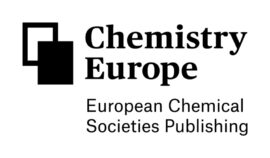Professor Albert van den Berg is Distinguished University Professor of the University of Twente (The Netherlands).
He received his master degree in applied physics from the University of Twente (The Netherlands) in 1983. After obtaining his PhD from the University of Twente in 1988, van den Berg worked at the Swiss Center for Electronics and Microtechnology (CSEM) and the Institute of Microtechnology (IMT) of the University of Neuchatel (Switzerland). From 1993 until 1999 he was research director Micro Total Analysis Systems (μTAS) at the MESA+ institute of the University of Twente. In 1998 he was appointed as part-time professor Biochemical Analysis Systems and in 2000 as full professor on Miniaturized Systems for (Bio)Chemical Analysis in the Faculty of Electrical Engineering, Mathematics and Computational Science of the same university. Van den Berg (co-) authored ~ 270 publications in peer-reviewed journals with an average number of citations per paper of ~ 27 and a Hirsch index of 47. He was asked to write two Nature News & Views articles on nanofluidics publications, and co-edited a special issue in Chemical Society Reviews on micro and nanofluidics. Furthermore, van den Berg (co-) edited 4 books, is (co-) author of > 5 conference proceedings publications, > 10 national journal publications, > 10 book chapters, and holds > 15 patents/ patent applications.
Van den Berg is associate editor of Lab on a Chip and editorial board member of Biomedical Microdevices, Sensors and Actuators B and Microfluidics and Nanofluidics. He obtained a TOP NWO (2012) grant from The Netherlands Science Foundation (NWO) and an Advanced ERC grant (2008) and ERC Proof of Concept grant (2011) from the European Research Council. Van den Berg also has received several research awards, including the 2002 Simon Stevin Master award from the Dutch Technical Science Foundation (STW), the 2004 Leverhulme Trust Award for knowledge valorization, the 2007 Top Institute Food and Nutrition publication Prize and the 2009 Spinoza Award, the most prestigious scientific award in The Netherlands. Furthermore, he has been appointed in 2012 as Distinguished Professor at South China Normal University.
Van den Berg is Flagship captain of the Nanofluidics program of the NanoNext research program (since 2008). Van den Berg is also an elected member of the Royal Netherlands Academy of Sciences (KNAW, 2008-onwards). He serves on several boards and panels for research, including board member of the Wyss Institute at Harvard University, the ETH D-BSSE institute in Basel, board member of the KNAW, member of the Dutch Health Council and board member of the Chemical and Biological Microsystems Society. He also has been founding chairman of the microTAS conference series (1994-now) as well as chairman of the National Sensor Conference (1998), the Gordon Research Conference on Chemistry and Fluidics of Microfluidics (2003) and the 1st International Conference on Nanofluidics (2006).

